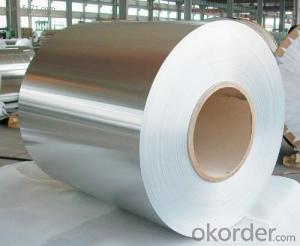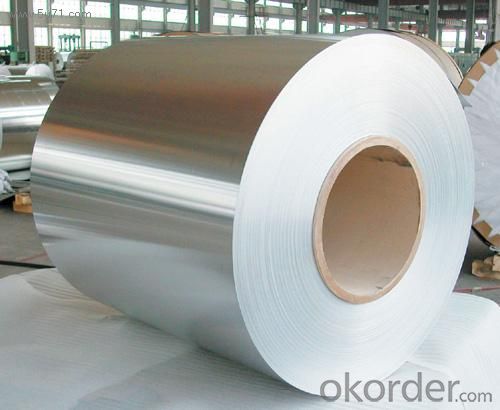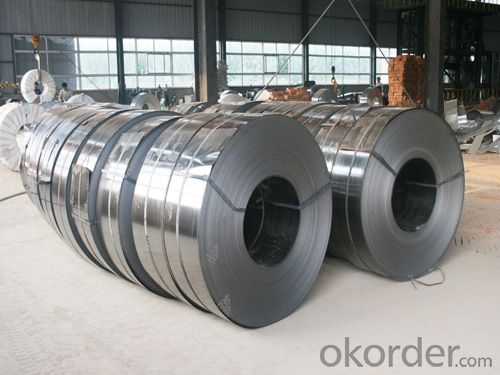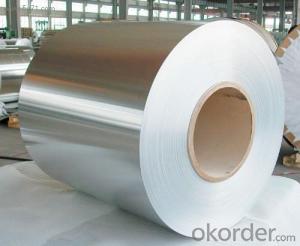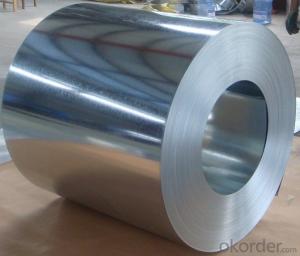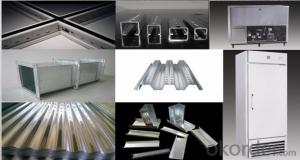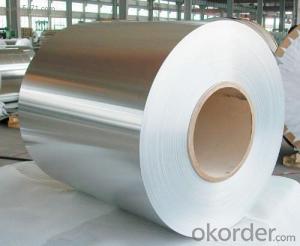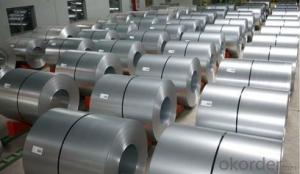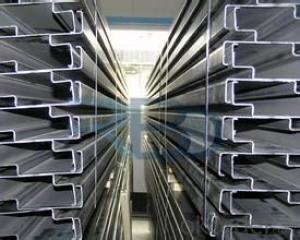Hot-dip Zinc Coating Steel Building Roof Walls DX51D+Z with Low Price
- Loading Port:
- China main port
- Payment Terms:
- TT OR LC
- Min Order Qty:
- 50 m.t.
- Supply Capability:
- 10000 m.t./month
OKorder Service Pledge
OKorder Financial Service
You Might Also Like
Hot-dip Zinc Coating Steel Building Roof Walls DX51D+Z with Low Price
1.Structure of Hot-dip Zinc Coating Steel Building Roof Walls DX51D+Z:
Hot-dip galvanized steel coils are available with a pure zinc coating through the hot-dip galvanizing process. It offers the economy, strength and formability of steel combined with the corrosion resistance of zinc. The hot-dip process is the process by which steel gets coated in layers of zinc to protect against rust. It is especially useful for countless outdoor and industrial applications. Production of cold formed corrugated sheets and profiles for roofing, cladding, decking, tiles, sandwich walls, rainwater protective systems, air conditioning duct as well as electrical appliances and engineering.
2.Main Features of Hot-dip Zinc Coating Steel Building Roof Walls DX51D+Z:
• Excellent process capability
• Smooth and flat surface
• Workability, durability
• Excellent anticorrosive property
• Good visual effect
3.The Steel Sheet Images:
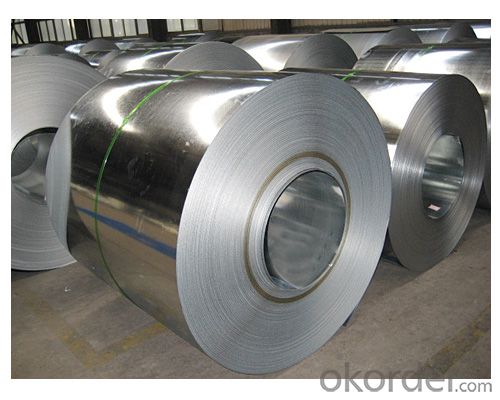
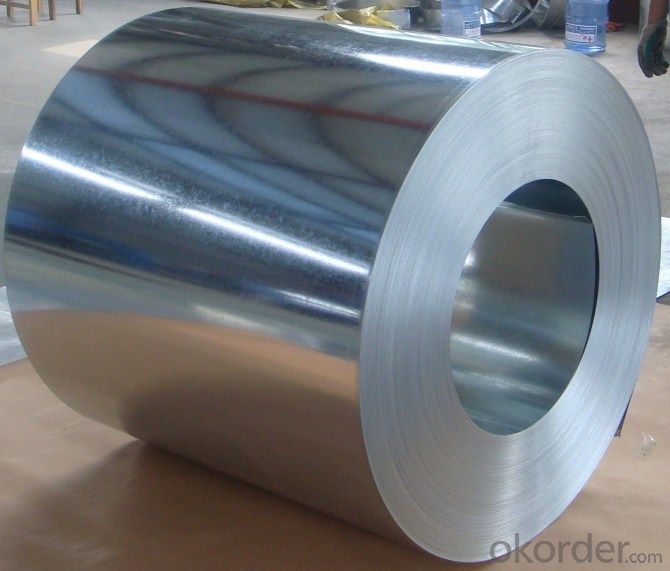
4.Hot-Dip Galvanized Steel Sheet Specification
Standard: ASTM, JIS,EN
Grade: CS, DX51D+Z,SGCC, SS 230~550,S220GD+Z~S550GD+Z, SGC340~SGC570
Thickness: 0.18mm~5mm
Width: max 2000mm
Coil weight:3-12 MT
Coil ID:508/610mm
5.FAQ of Hot-Dip Galvanized Steel Sheet
We have organized several common questions for our clients,may help you sincerely:
1.How to guarantee the quality of the products?
We have established the international advanced quality management system,every link from raw material to final product we have strict quality test;We resolutely put an end to unqualified products flowing into the market.
2. How long can we receive the product after purchase?
Usually within thirty working days after receiving buyer’s advance payment or LC. We will arrange the factory manufacturing as soon as possible. The cargo readiness usually takes 15-30 days, but the shipment will depend on the vessel situation.
- Q: What are the different methods of transporting steel coils?
- There are several methods of transporting steel coils, including using flatbed trucks, railcars, and ocean vessels. Flatbed trucks are commonly used for short distances and local deliveries, while railcars are utilized for longer distances and intermodal transportation. For international shipments, steel coils are typically transported on ocean vessels, either in containers or as breakbulk cargo. The choice of method depends on factors such as distance, destination, and cost-effectiveness.
- Q: How are steel coils used in the production of pipelines?
- The production of pipelines relies heavily on steel coils, which are indispensable components. These coils, crafted from top-notch steel, are utilized in the manufacturing of the pipes themselves. To initiate the process, the steel coil is unfurled and then cut into the desired size and length. The resulting pieces are then molded into cylindrical tubes through a technique known as pipe forming. Once the pipes are formed, they undergo several additional procedures to bolster their strength and durability. These may include welding, heat treatment, and coating to safeguard against corrosion. Steel coils are also employed in the creation of essential fittings and connectors required for the connection and joining of the pipes. The utilization of steel coils in pipeline production offers numerous advantages. Firstly, steel possesses exceptional strength and durability, rendering it ideal for withstanding the high pressure and stress that pipelines endure. Additionally, steel exhibits remarkable resistance to corrosion, a critical characteristic for pipelines that transport various substances like oil, gas, or water. Moreover, steel coils facilitate efficient production processes. The uniformity of the coils ensures consistent pipe dimensions, thereby facilitating easy assembly and installation. The versatility of steel allows manufacturers to customize pipes of varying sizes and specifications to meet specific project requirements. In conclusion, steel coils assume a crucial role in pipeline production. They are utilized in the creation of pipes, fittings, and connectors. The utilization of steel guarantees strength, durability, and resistance to corrosion, making it the preferred material for pipelines. Furthermore, steel coils enable efficient production processes and offer versatility in terms of customization.
- Q: Eutectoid Steel
- Eutectic steel is used to produce pearlite, bainite, spheroidite and martensite steels. Those steels vary in strength, hardness and ductility. One uses martensite steel for example in razor blade manufacturing. Of course there is no end to the various uses of these steels.
- Q: my step father bought a big steel drum grill it has steel sheets (very thin) that go inbetween the flame and the food (closer to the flame) with that there the food will not cook, it does not get hot enough????? please help... what should we do
- This type of grill cooks like an oven You have to keep the lid shut until the proper temp. is reached. Then place you meats and stuff on the grill and close the lid. Open the lid infrequently to keep the heat in. If its charcoal make sure you use enough charcoal the first time so you don't have to add any while you food is cooking.
- Q: can anyone tell me the way to bring back the shine to the stainless steel kitchen sink . It has become dull.
- A stainless steel kitchen sink is durable, easy to keep clean and disinfect, and will only grow more beautiful with age - if you take proper care of it. Clean the sink with soapy water, or a stainless steel cleaner (Spray N Sheen Stainless Steel Cleaner/Polish/Protectant) once or twice a week. Once or twice a month, fill the sink half full with a 50/50 solution of bleach and water or a special stainless steel cleaner (Stainless Steel Cleaner). Let it soak for about 15 minutes, then wash the sides and bottom and let it drain. Remember to wipe dry when done.
- Q: What are the common problems faced during steel coil production?
- Some common problems faced during steel coil production include surface defects such as scratches or dents, dimensional inconsistencies, coil breakage, edge wave formation, and coil slitting issues. Other challenges may include coil corrosion, improper coil cooling, and quality control issues.
- Q: How do steel coils contribute to the water and wastewater industry?
- Steel coils contribute to the water and wastewater industry by being used in the construction of pipes, tanks, and other infrastructure. These coils provide strength, durability, and corrosion resistance, ensuring the integrity and longevity of water and wastewater systems. Additionally, steel coils are often utilized in the manufacturing of water treatment equipment and machinery, helping to improve the efficiency and effectiveness of the water and wastewater treatment processes.
- Q: I'm quite confused...i watched all of steel angel kurumi (the 28 episodes) and then continued to steel angel kurumi zero. it was an entire different story line with only the steel angels being the same. the world is different the guys are different, and there is a new character. Even the humor is gone. its like a whole different series. So what gives, what is the relationship between them?
- Steel Angel Zero is an OVA (Original Video Animation), a very short animation that went straight to DVD. It probably was written because Kurumi was so popular, and the producer wanted to check the waters for whether they should make a second season. It's pretty hard to keep track of what anime is which, especially in the more popular series. If you think Zero is worth zero, try Steel Angel Kurumi 2 (anime, 12 episodes), and Steel Angel Kurumi Encore (OVA, 4 episodes) as well.
- Q: i bought an airsoft gun and it said steel recievers on it im not sure what that is
- it means the receivers are made of steel. the receivers on an airsoft gun is pretty much the body of the gun. So pretty much whatever you see on the outside is steel.
- Q: What are the common coil processing equipment used in the industry?
- Some common coil processing equipment used in the industry include coil slitting machines, coil leveling machines, coil cutting machines, coil recoiling machines, and coil feeding systems. These machines are used to process coils of various materials, such as steel, aluminum, and copper, into desired sizes and shapes for further manufacturing processes.
Send your message to us
Hot-dip Zinc Coating Steel Building Roof Walls DX51D+Z with Low Price
- Loading Port:
- China main port
- Payment Terms:
- TT OR LC
- Min Order Qty:
- 50 m.t.
- Supply Capability:
- 10000 m.t./month
OKorder Service Pledge
OKorder Financial Service
Similar products
Hot products
Hot Searches
Related keywords
